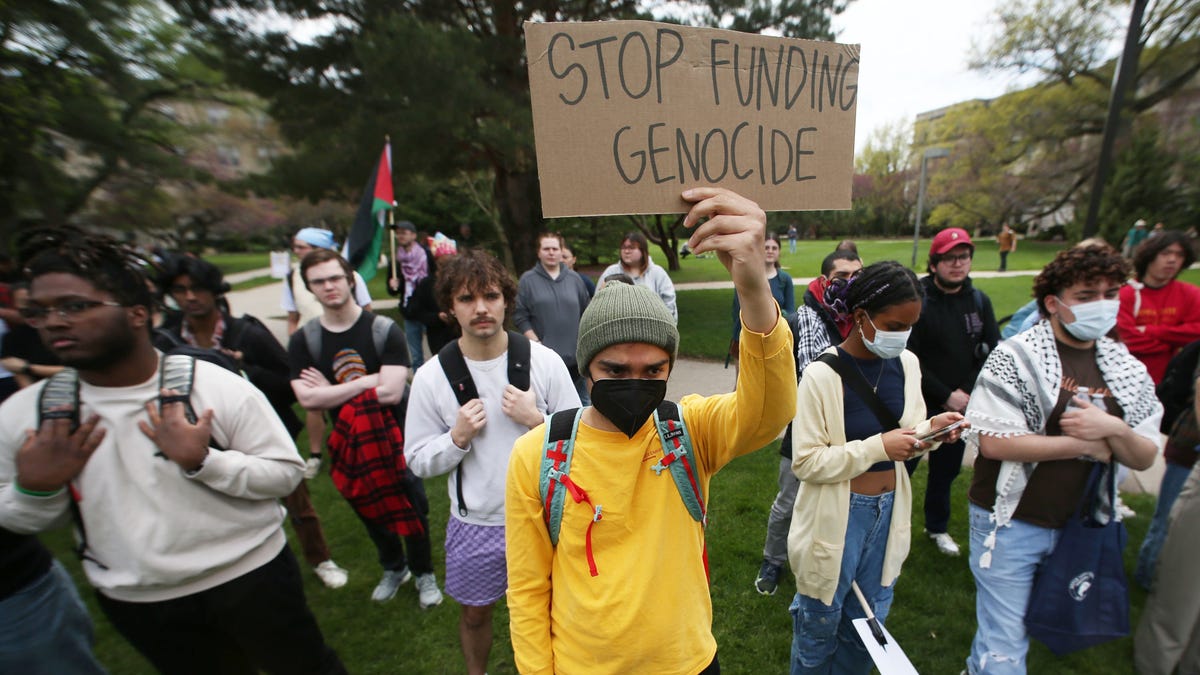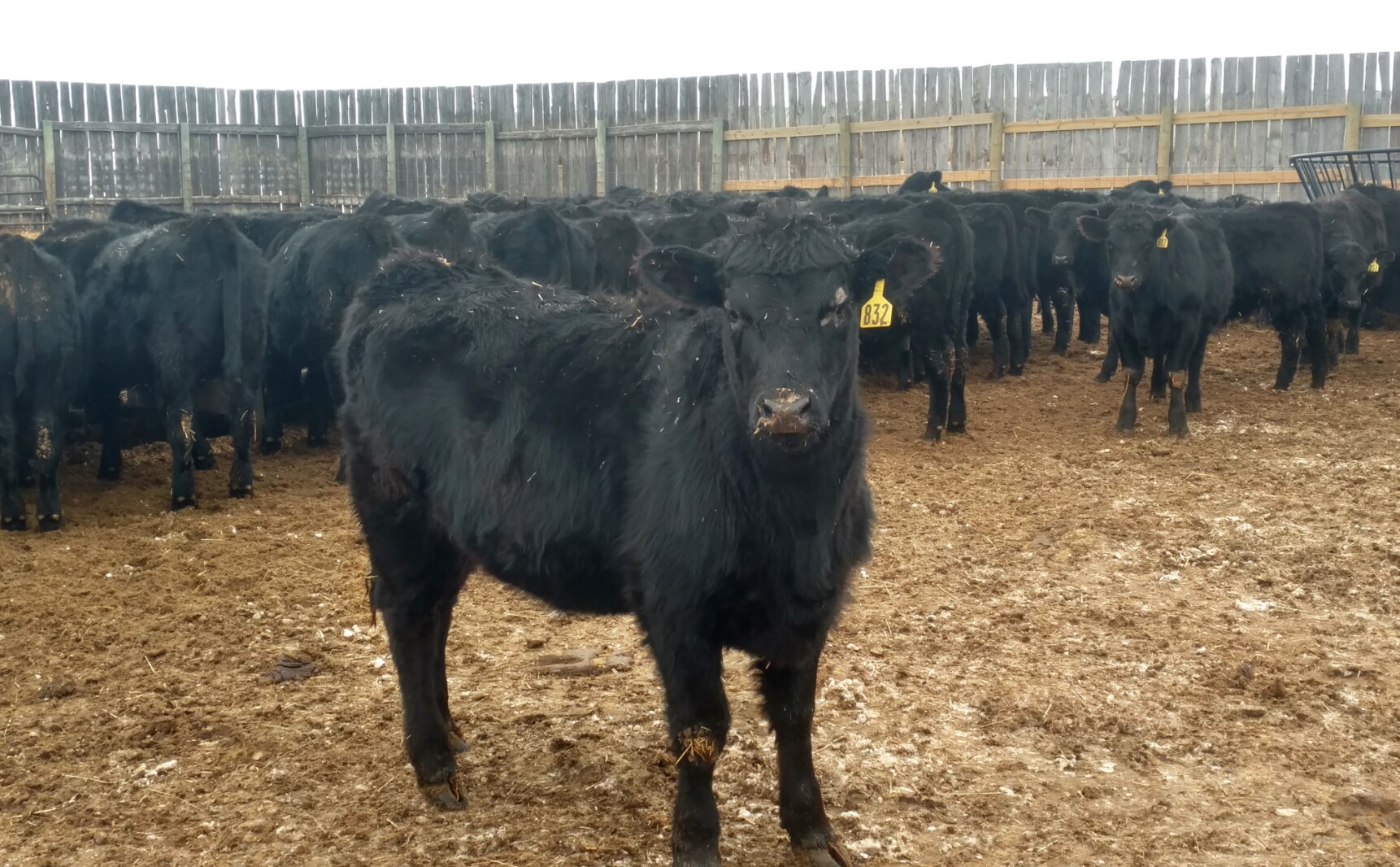World
Russia and China clash with US and UK over attacks on Yemen rebels for strikes on Red Sea ships
UNITED NATIONS (AP) — Russia and China on Wednesday accused the United States and Britain of illegally attacking military sites used by Yemen’s Houthi rebels to launch missiles at commercial vessels in the Red Sea, disrupting global shipping.
U.S. deputy ambassador Robert Wood and UK Ambassador Barbara Woodward countered that the Houthi attacks are illegal, and their “proportionate and legal action” against the Yemen rebels are being taken in self-defense.
Woodward said the Houthi attacks are “driving up the costs of global shipping, including the costs of food supplies and humanitarian aid in the region.”
But Russia’s deputy U.N. ambassador Dmitry Polyansky and China’s U.N. envoy Zhang Jun argued that the U.N. Security Council never authorized military action against Yemen.
The clashes came at a council meeting where U.N. special envoy for Yemen Hans Grundberg said promising efforts to restore peace to Yemen have been slowed by rising regional tensions linked to the war in Gaza and “in particular the military escalation in the Red Sea.”
Since November, the Houthi rebels have targeted ships in the Red Sea to demand a cease-fire in Israel’s offensive in Gaza. They have frequently attacked vessels with tenuous or no clear links to Israel, imperiling shipping in a key route for trade among Asia, the Mideast and Europe.
In recent weeks, the United States and the United Kingdom, backed by other allies, have launched airstrikes targeting Houthi missile arsenals and launch sites for its attacks.
Wood, the U.S. envoy, said American strikes in response to attacks on U.S. naval vessels, “aim to disrupt and degrade the Houthis’ ability to continue their reckless attacks against vessels and commercial shipping in the Red Sea, the Bab al-Mandeb Strait, and the Gulf of Aden.”
Since 2014, he said, Iran has provided the Houthis with “a growing arsenal of advanced weapons” that they have used to target commercial ships, and “Iran cannot deny its role in enabling and supporting the attacks carried out by the Houthis.”
Wood accused the Houthis of “trying to apply a chokehold on global shipping through the Red Sea” and urged all countries, especially those with direct channels to Iran, “to press Iran’s leaders to rein in the Houthis and stop these lawless attacks.”
Russia’s Polyansky stressed that Moscow “categorically condemns attacks and seizures of commercial vessels and (…) any attacks which impede freedom of navigation.” He said Russia has conveyed messages to the Houthi leaders to focus on Yemen’s domestic agenda and pursue peace.
Grundberg, the U.N. envoy, said that in late December the Houthis, who control the capital and much of the country’s north, and Yemen’s internationally recognized government “committed to a nationwide cease-fire, measures to improve living conditions, and restarting an intra-Yemeni political process.”
But he said Yemen’s peace process can’t be cordoned off from the events in the region, and the U.S. and UK attacks on Houthi targets, and the U.S. designation of the Houthis as a “Specially Designated Terrorist Group” are “concerning.”
“Despite potential complications, my work will continue no matter what,” he said. “It is therefore imperative that we protect the political space, that communication channels are kept open and that all actors remain actively engaged with my efforts.”
Russia’s Polyansky said the root cause of the current situation is Israel’s military offensive in Gaza following Hamas’ surprise attack in southern Israel on Oct. 7, which has provoked a chain reaction in the Middle East including by the Houthis.
“An immediate cease-fire in Gaza will help to stabilize the situation in the Red Sea, and the de-escalation in those waters will in turn unblock the efforts of the special envoy, Mr. Grundberg,” Polyansky said.
Yemen’s civil war began in 2014 when the Houthis swept down from their northern stronghold and chased the internationally recognized government from Sanaa. A Saudi-led coalition intervened the following year on behalf of the government and in time the conflict turned into a proxy war between Saudi Arabia and Iran.
The war has devastated Yemen, already the Arab region’s poorest country, and created one of the world’s worst humanitarian disasters.
Edem Wosornu, the U.N. humanitarian office’s director of operations, told the council that Yemen faces “massive continuing needs.”
This year, she said, over 18 million people – over half the country’s population – will need humanitarian aid.
The U.N. anticipates that 17.6 million people will be “severely food insecure” — facing serious hunger, she said. “Nearly half of all children under five face moderate to severe stunting” of their growth and development.
Last year, the U.N. received just 40% of its $4.3 billion humanitarian appeal, she said. This year, the Yemen appeal is more targeted and seeks $2.7 billion to reach 11.2 million people across Yemen.
___
Full AP coverage at https://apnews.com/hub/israel-hamas-war

World
'Show solidarity': Pro-Palestinian protesters camp across Australian universities

World
China increases aggressive moves against Taiwan as island prepares to inaugurate new president
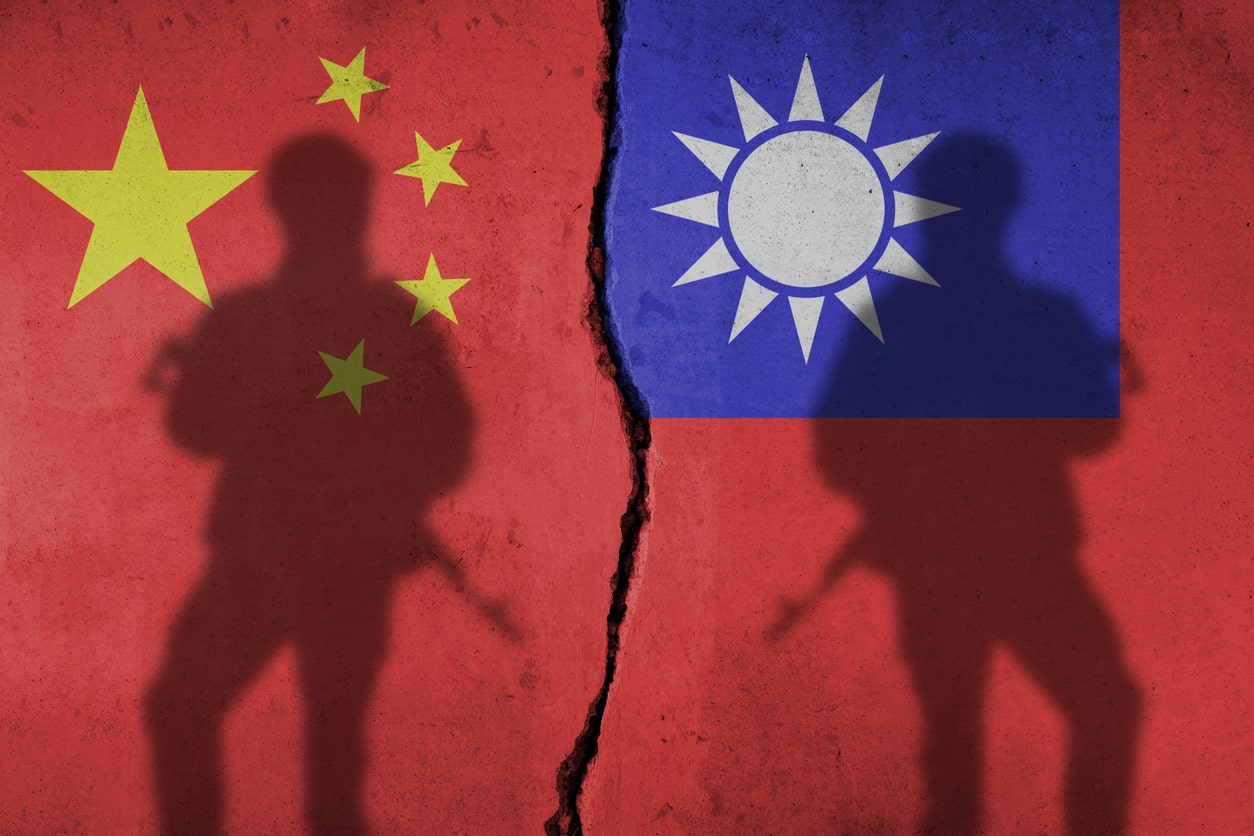
KAOHSIUNG — Virtually every day, the People’s Republic of China does something unprecedented — its coast guard briefly boarding a Taiwanese tourist boat, flying military aircraft ever closer to Taiwan or increasing harassment of Taiwanese fishing boats in the South China Sea.
“This is a problem,” says Dean Karalekas, author of “Civil-Military Relations in Taiwan: Identity and Transformation.” “Because these unprecedented actions are creating a new normal. Beijing hopes that we (the West) will sit by and watch as they take over Taiwan, just as we did when they used these same salami-slicing tactics to take over the South China Sea.”
The world began noticing more of China’s hostile actions following the visit to Taiwan by former U.S. House Speaker Nancy Pelosi in 2023, but the strategy has been in place for some time.
“China’s plan to ‘normalize’ military encroachments was planned long before Pelosi’s visit,” Taipei Times columnist and political commentator C. Donovan Smith told Fox News Digital. “The military exercises were far too complex and logistically complicated to have been planned in the short span of time between the announcement of her trip and her arrival in Taiwan.”
TAIWAN ELECTION: RULING PARTY CANDIDATE WINS TIGHTLY CONTESTED PRESIDENTIAL RACE, UPSETTING CHINA’S AMBITIONS
President-elect William Lai votes in southern Taiwan’s Tainan city Jan. 13, 2024. (AP Photo/Ng Han Guan)
Surrounding Taiwan in a mock “quarantine” and performing missile “tests” in 2023 was also intended to push Taiwanese voters toward politicians and parties more friendly to China. But, as has been the case in the last three elections here, Beijing’s ploys were ineffectual. Taiwan in January elected the incumbent vice president, William Lai, to take over from two-term President Tsai Ing-wen. Both Tsai and Lai are members of the Democratic Progressive Party (DPP).
The incoming Taiwan president has repeatedly pledged to make no changes to policies in place over the last eight years. Beijing, however, sees William Lai (Lai Ching-te) as a “splittist” and a supporter of Taiwan independence. Lai previously did voice support for independence but has tried to walk that back. China, however, does not forgive nor forget. Many political experts believe Beijing will ratchet up pressure as Lai enters office later this month.
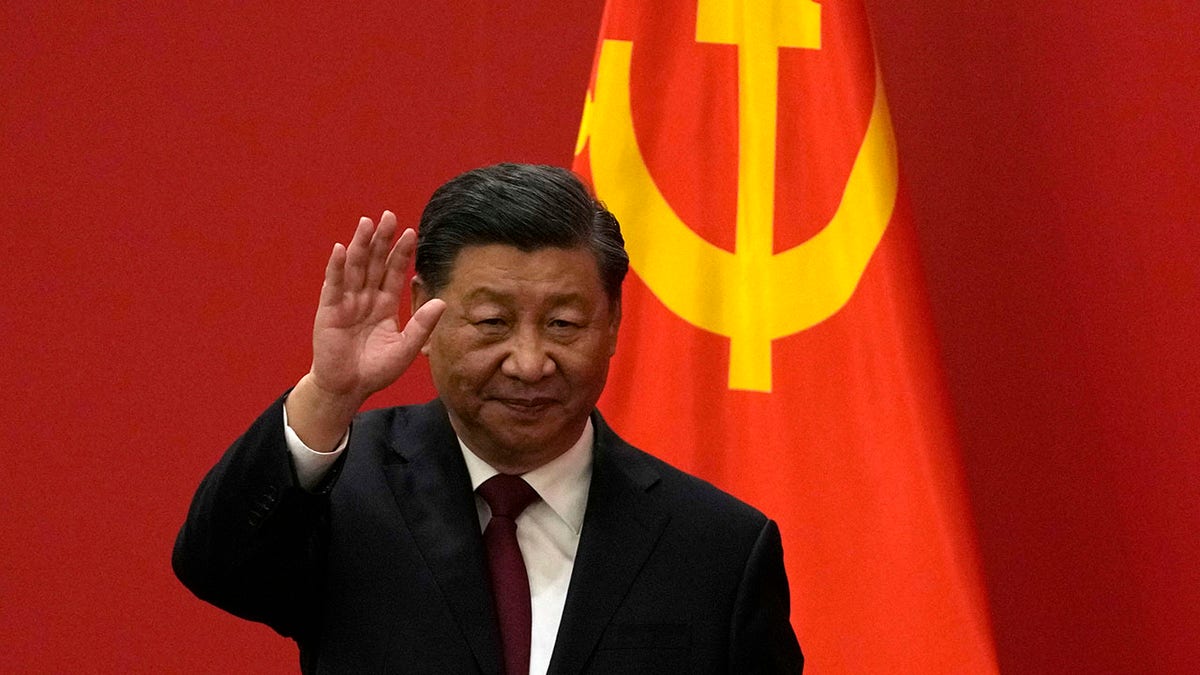
Chinese President Xi Jinping waves at an event to introduce new members of the Politburo Standing Committee at the Great Hall of the People in Beijing Oct. 23, 2022. (AP Photo/Andy Wong, File)
A recent example of China’s attempts to establish this “new normal” is changes to airspace rules. China is close to finishing a massive new airport serving Xiamen in Fujian Province. Just 6.2 miles away, however, sits the island of Kinmen, which has remained a part of the Republic of China (ROC), better known as Taiwan, since 1949.
Kinmen Airport is strategically important for Taiwan. In 2015, the two sides worked out a deal to change a flight path that was a bit too close for Taiwan’s comfort. But in February, Beijing unilaterally backed out of the deal, announcing that, from May 16, new air routes would begin operating to “further optimize airspace” around the area.
FOR CHINA’S MILITARY PLANNERS, TAIWAN IS NOT AN EASY ISLAND TO INVADE
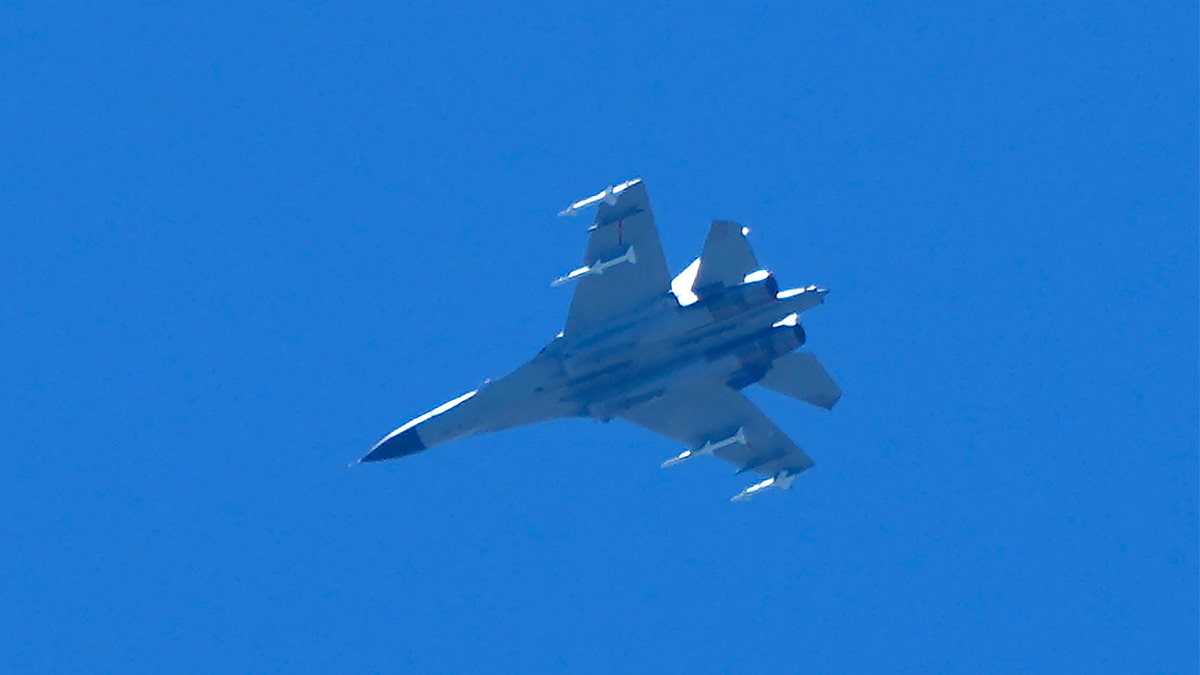
A fighter jet flies in the direction of Taiwan as seen from the 68-nautical-mile scenic spot, the closest point in mainland China to the island of Taiwan, in Pingtan in southeastern China’s Fujian Province Aug. 5, 2022. (AP Photo/Ng Han Guan)
Few China watchers think China picked the day arbitrarily, says Karalekas.
“Beijing has a pattern of testing new leaders of enemy states. They tested Bush with the EP-3E spy plane incident. They tested (then-Japanese prime minister) Naoto Kan with the Senkaku boat collision. We can expect them to test Lai by creating some sort of mini-crisis around the time he takes office on May 20.”
“I think China is really ramping up threats,” Eric Hsu told Fox News Digital. Hsu lives in southern Taiwan’s biggest city, Kaohsiung, has worked on historical restoration projects and hosts a podcast on Taiwan history.
He says he isn’t only worried about military hardware, but also what he termed, “brainwashing videos and moves by KOLs,” (Key Opinion Leaders, a term used to describe internet influencers).
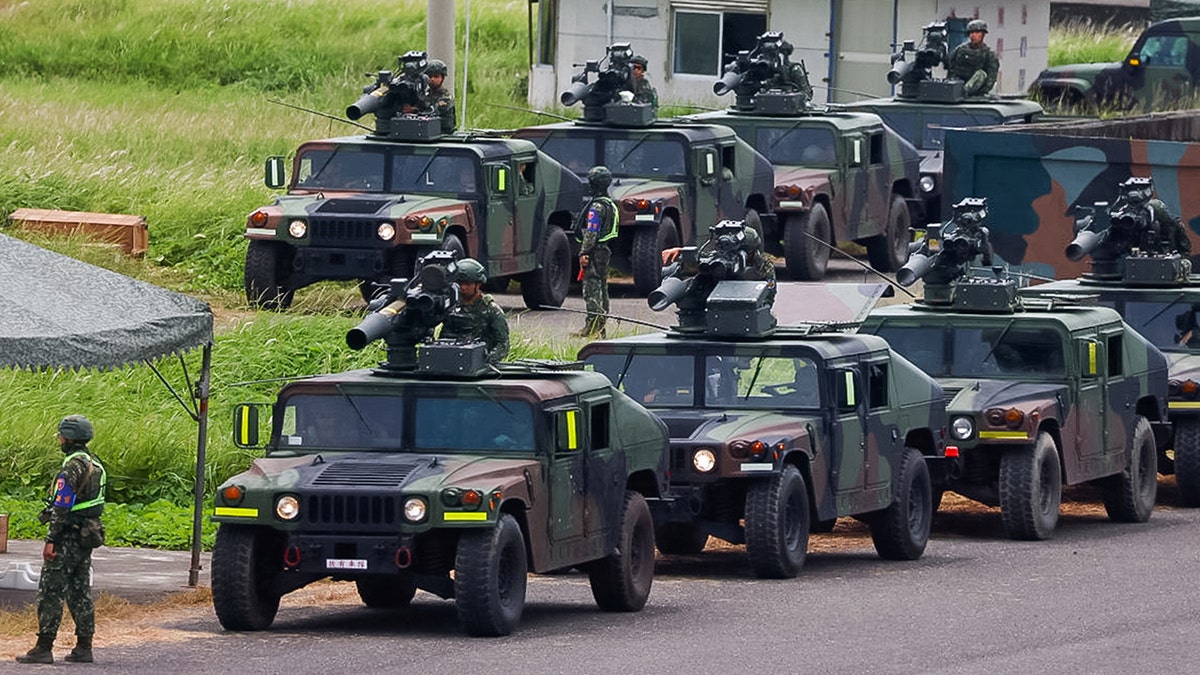
Military vehicles equipped with a U.S.-made TOW 2A missile during a live fire drill in Pingtung, Taiwan, July 3, 2023. (REUTERS/Ann Wang)
Hsu places much of the blame at the feet of local opposition parties seen by many as more friendly to Beijing. Describing the current domestic political situation, he said Taiwan faces “not just an enemy at the gate, but also enemies within.” South Taiwan is a DPP stronghold, but not everyone in the south agrees that the opposition parties are the problem.
Another resident of Kaohsiung, a self-employed businessperson and mother, Ms. Lin, thinks the DPP hasn’t been sincere in reaching out to China.
“They’ve had eight years, and now they will get at least another four,” Lin told Fox News Digital. “What Taiwan needs are brave leaders, people willing to try new solutions, and I don’t see any such people in the current DPP leadership.”
TAIWAN PRESIDENT-ELECT CHOOSES NEW FOREIGN, DEFENSE MINISTERS AS CHINA ANNEXATION THREATS INTENSIFY
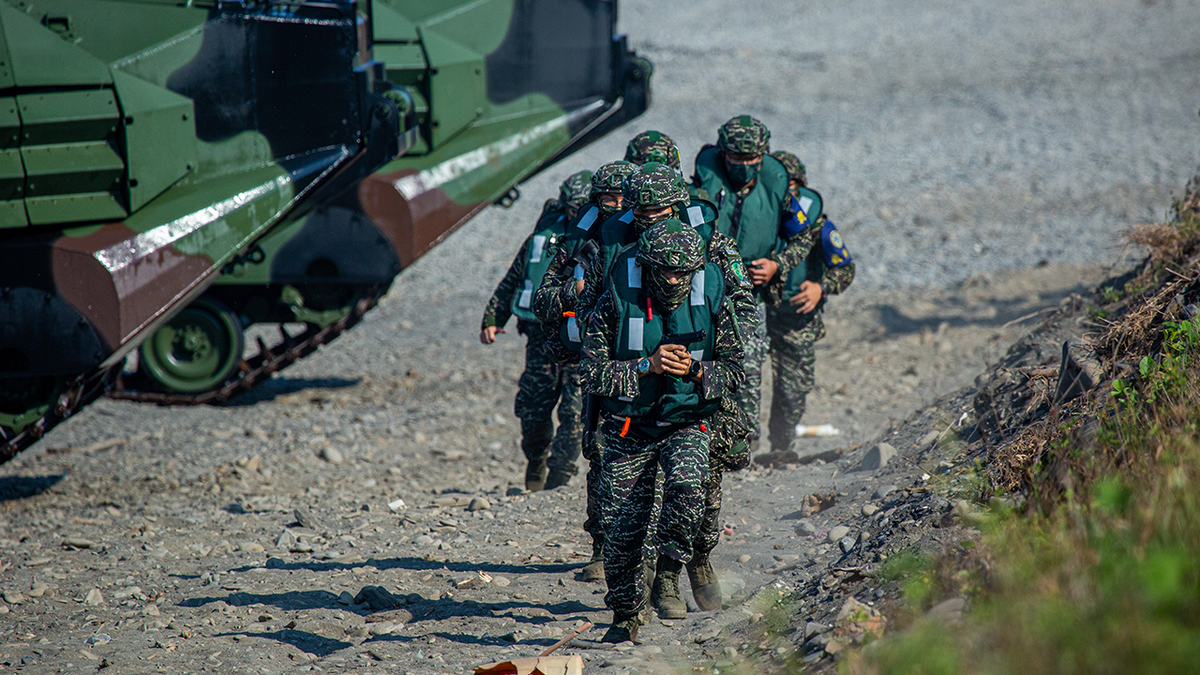
Soldiers disembark from AAV7 amphibious assault vehicles during the Han Kuang military exercise, which simulates the China’s People’s Liberation Army invading the island July 28, 2022 in Pingtung, Taiwan. (Annabelle Chih/Getty Images)
The main opposition party, the Kuomintang (KMT), denies it is “China-friendly” and instead says it is “peace-friendly.” Chinese dictator Xi Jinping has met with the KMT’s Ma Ying-jeou twice, first in Singapore in 2015 when Ma was in office as ROC (Taiwan) president. It was the first time since the end of WWII top leaders from China and Taiwan sat in the same room. Each side in 2015 chose to ignore official titles and address each other as “Mr. Xi” and “Mr. Ma.” On April 10,, “Mr. Xi” and former Taiwan president “Mr. Ma” met again, this time in Beijing.
Some experts see such meetings between the KMT and China favorably, arguing that any dialogue is good and – if nothing else – provides a way for China to save face as it continues its policy of mandatory “reunification,” which China now says may need to be achieved by force. Others in Taiwan and abroad see Ma’s meetings as straying far too close to an acceptance of the idea that Taiwan is a part of China.
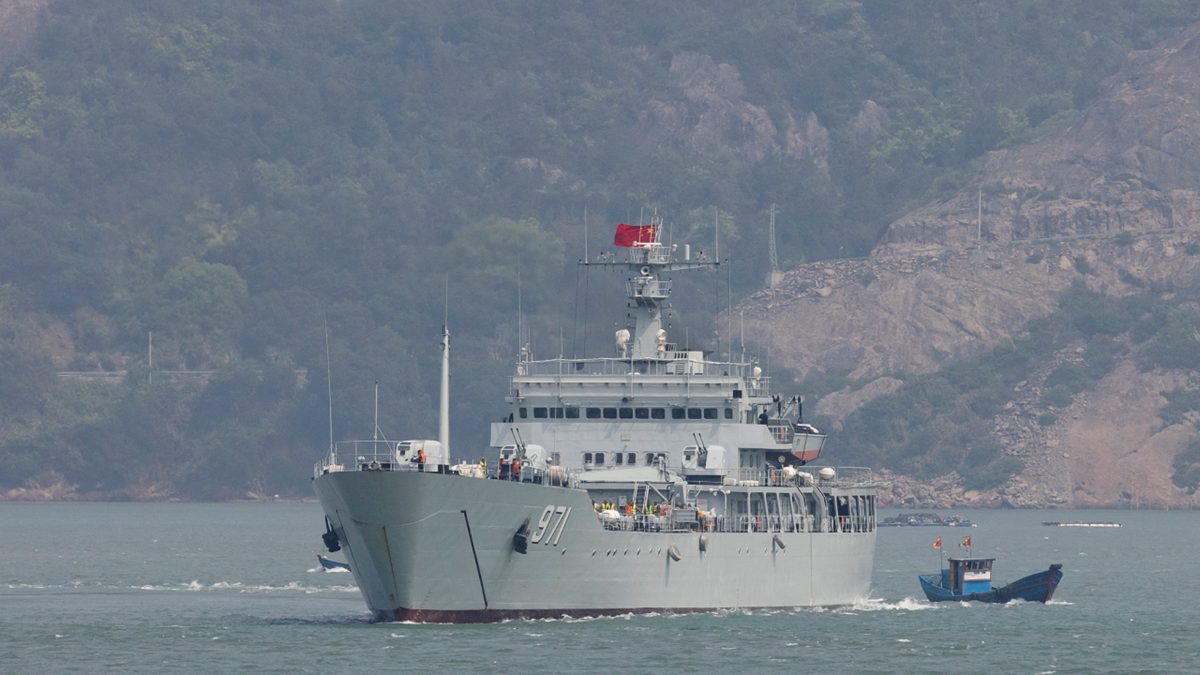
A Chinese warship sails during a military drill near the Taiwan-controlled Matsu Islands near the Chinese coast April 8. (Reuters/Thomas Peter)
As it stands, the ruling DPP says it’s content with the status quo, including keeping Taiwan’s official name, the Republic of China. The KMT is generally more in favor of talks with Beijing under a mutual respect “consensus” idea that boils down to agreeing that both sides are “China,” but each side is free to interpret what this “one China” means.
The problem with the KMT’s thinking, central Taiwan-based newspaper columnist and political commentator Michael Turton told Fox News Digital, is that “Xi’s goal is the complete subjugation of Taiwan, just like Hong Kong. Two of China’s ambassadors abroad have already indicated that Taiwanese opposed to Beijing rule will be shipped off to concentration camps. Given this goal, how can there ever be dialogue with mutual respect?”
World
Brussels, my love? Champage cracked open to celebrate the Big Bang

In this edition, we zoom in on dwindling press freedom in Europe and check how Europe is doing 20 years after the big bang enlargement.
This week, we are joined by Olena Abramovych, Brussels correspondent for Ukrainian TV, Ricardo Borges de Castro, analyst in European and global affairs and Polish journalist Dorota Bawolek.
Panelists reflect on the big bang enlargement of the European Union that took place 20 years ago when leaders of 10 new countries presented their flags to Pat Cox, then president of the European Parliament. Despite the bumps along the way, the panel agreed it was a success.
“Even though you can say that the story has not always be rosy, over the past 20 years it has been a great story”, Ricardo Borges de Castro said.
The panel also marked International Press Freedom Day by focusing on the dwindling press freedom in the EU.
“It is very worrying and at the same time, unfortunately, not very surprising”, said Dorota Bawolek, who suffered attacks both online and offline for her reporting, and experienced censorship.
“Democracy in Europe is not living its best days at the moment. And media and media freedom is one of the victims of it”, she said.
Watch “Brussels, my love?” in the player above.
-

 News1 week ago
News1 week agoLarry Webb’s deathbed confession solves 2000 cold case murder of Susan and Natasha Carter, 10, whose remains were found hours after he died
-

 News1 week ago
News1 week agoFirst cargo ship passes through new channel since Baltimore bridge collapse
-

 World1 week ago
World1 week agoHaiti Prime Minister Ariel Henry resigns, transitional council takes power
-

 World1 week ago
World1 week agoSpanish PM Pedro Sanchez suspends public duties to 'reflect'
-

 World1 week ago
World1 week agoUS secretly sent long-range ATACMS weapons to Ukraine
-

 Movie Reviews1 week ago
Movie Reviews1 week agoHumane (2024) – Movie Review
-

 News1 week ago
News1 week agoAmerican Airlines passenger alleges discrimination over use of first-class restroom
-

 Education1 week ago
Education1 week agoVideo: Johnson Condemns Pro-Palestinian Protests at Columbia University



